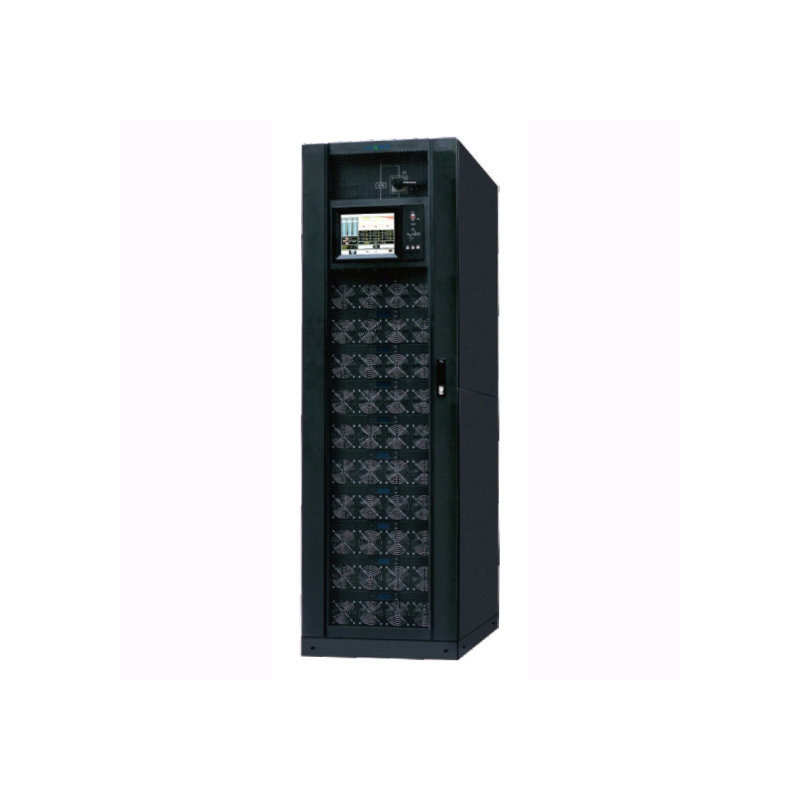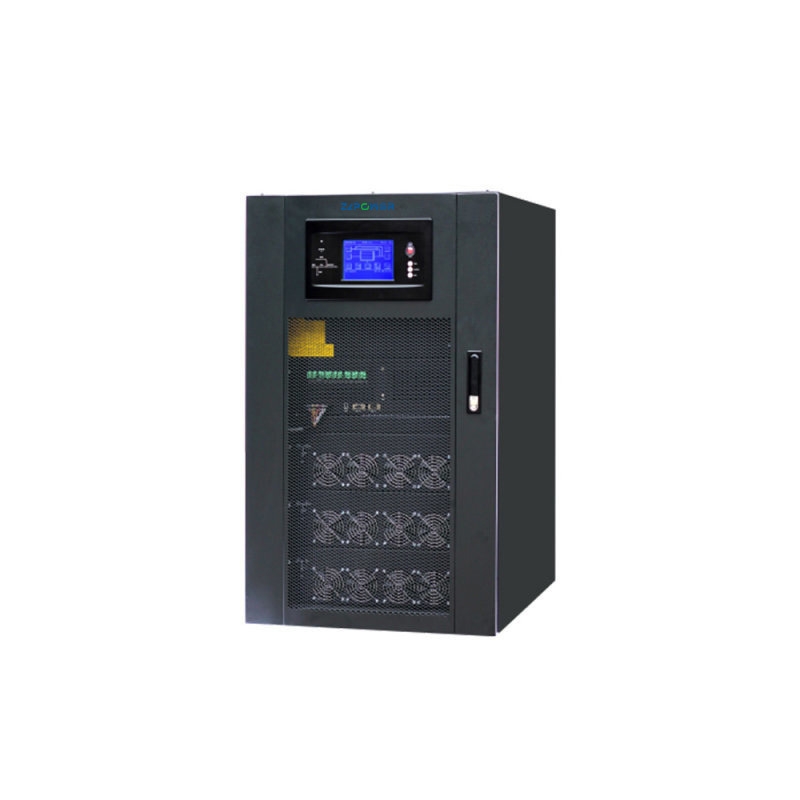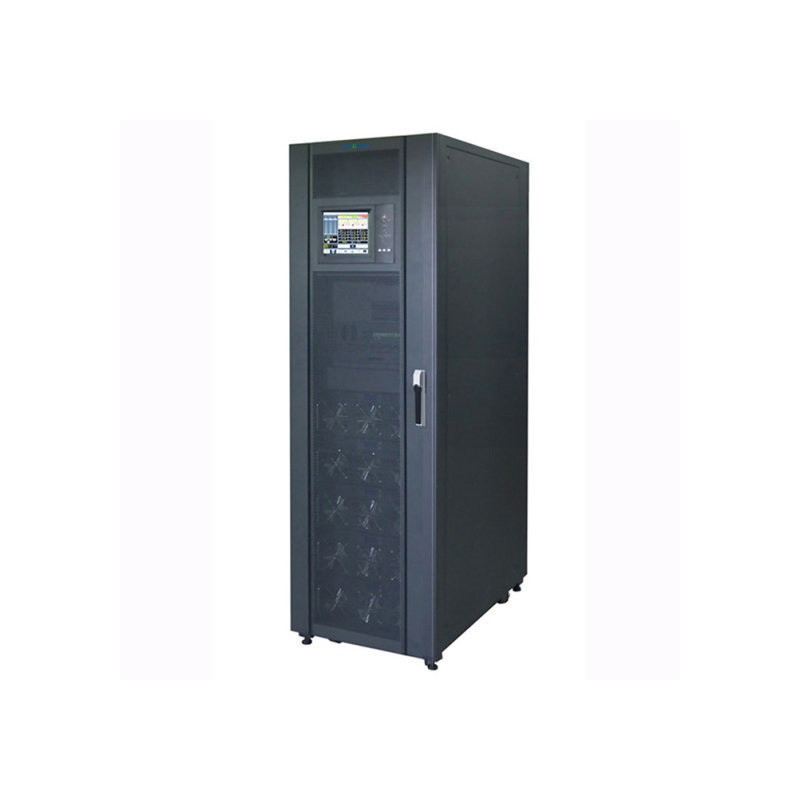

A UPS is a device that supplies backup power when the main source fails. It keeps critical equipment running during outages. It uses batteries or other energy storage to provide power.
UPS systems are vital in fields like healthcare, finance, telecom, and data centers. They prevent equipment shutdowns. They protect data. They ensure operations continue. RM series high frequency online UPS is specially designed for servers, data-center critical network devices, sensitive electronic equipment, telecom, bank, hospital, bureau, traffic, public security, ATM and so on.
Modular UPS systems are built to grow. They use multiple power modules that can be added or removed without shutting down. 92M Series Modular Online UPS features modular design, up to 20 power modules in parallel online hot-swappable. Each module has its own charger for smart battery management. This extends battery life.
Conventional UPS systems have a fixed capacity. They are single, pre-sized units. Maintenance or upgrades require a full shutdown. GP33 series Low frequency Online UPS is most advanced and new intelligent digital UPS by ZLPOWER, offering capacities from 10kVA to 400kVA with double conversion technology.
The main difference is flexibility. Modular systems use multiple small units in one frame. You can expand them as needed. Conventional systems are single large units with little room for change. Modular designs allow easy swaps of parts. Maintenance is simpler. Conventional systems need more complex servicing or upgrades.
Modular UPS systems are often more efficient. They adjust to match power needs dynamically.
93M Series Modular Online UPS has a smart sleep function. It puts some modules to sleep when demand is low. This boosts overall efficiency. Conventional systems, like the GP33 series, run at full capacity even for smaller loads.
95M Series Modular Online UPS works in double conversion mode with up to 96% efficiency. GP33 series Low frequency Online UPS uses green commute and inverter technology. It generally has lower efficiency than modular systems.

Modular designs offer N+X redundancy. Extra modules act as backups. 95M Series Modular Online UPS supports high scalability. Each module works independently. This ensures power continues if one module fails.
Conventional systems often need full shutdowns for repairs. This can cause downtime unless extra backup systems are in place. These are costly and take up space compared to modular systems’ built-in redundancy.
Modular systems are designed to grow without interruption.
92M Series Modular Online UPS allows up to 20 power modules in parallel online hot-swappable. Businesses can increase capacity easily as needs grow. No shutdowns or complex rewiring are needed.
93M Series offers high power density. It uses only 0.66m² for 300kVA. This suits tight spaces like urban data centers.
Conventional systems are hard to expand. Upgrades often mean replacing the whole unit or adding another system. Both options are expensive and cause downtime.
Conventional units also take up more space. Larger units need more room than high-density modular options. For example, 95M Series delivers 500kVA in one cabinet using less than 1.45m².

Choosing between modular and conventional UPS systems from ZLPOWER is key for reliable power solutions. Both provide backup power, but their performance differs. Modular systems offer better scalability, energy savings, reliability, and easier maintenance. They are ideal for growing setups like data centers or businesses. Conventional systems work well for fixed loads with no plans for expansion. Your choice depends on your needs, growth plans, budget, and how critical uptime is for your success.
A: A modular UPS consists of multiple smaller power modules that can be added or removed as needed. This allows flexibility and scalability. A conventional UPS is a single, fixed-capacity unit designed for a specific load. Modular systems are more adaptable, while conventional systems are simpler and often less expensive upfront.
A: Both provide reliable power protection. Modular UPS systems often use high-frequency technology, offering high efficiency (up to 95-98%) and clean power output. Conventional UPS systems, especially online models, also deliver clean power with zero transfer time but may have lower efficiency in larger setups. Modular systems can balance loads across modules, improving performance for dynamic environments.